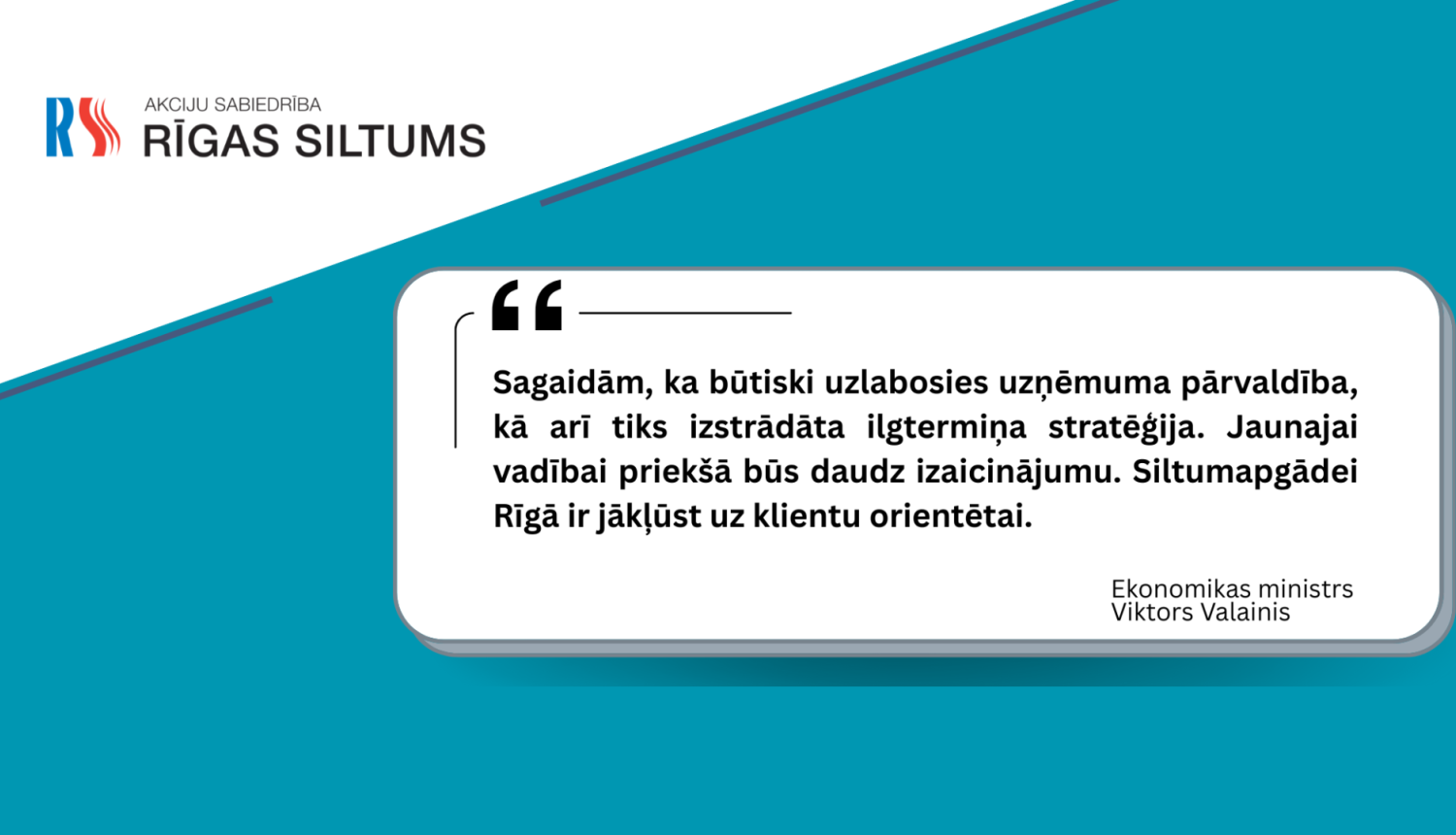Translated using ChatGPT service.
The Ministry of Economics (MoE), as one of the largest shareholders of AS “Rīgas Siltums” (RS), expects the company’s new management to present a strategic vision for the necessary changes within the corporation, including plans for efficiency improvements and future development.
From Friday, September 5, AS “Rīgas Siltums” is led by a new Chairman of the Board, Kalvis Kalniņš.
“We expect a significant improvement in corporate governance, as well as the development of a long-term strategy. The new management will face many challenges. Heat supply in Riga must become more customer-oriented,” emphasizes Economics Minister Viktors Valainis.
As one of RS’s shareholders, the MoE on September 3 proposed convening an extraordinary shareholders’ meeting, urging all shareholders to decide on the dismissal of the RS Council. The MoE stresses that the RS Board must assume full responsibility for the company’s operations, while the RS Council is responsible for overseeing the Board’s work. The MoE also recalls that the 70% reduction in the RS tariff increase was achieved due to the active involvement of the MoE, not the RS Board, and that the RS Council was not ambitious enough and did not initially take active steps to prevent the tariff increase.
Under the Commercial Law, a shareholders’ meeting must be convened within 21 days, but if all shareholders agree, it can be held sooner. Therefore, the MoE has contacted the Riga City Council and other shareholders to schedule the extraordinary shareholders’ meeting as quickly as possible. At the same time, the MoE has committed to organizing the nomination process for candidates to the RS Council, aiming to propose competent, goal-oriented candidates for election.
The MoE primarily expects the company’s management to urgently address the following fundamental issues:
-
Development and implementation of an operational efficiency program
-
Creation and execution of a long-term infrastructure development plan
-
Vision for long-term tariff evolution (including market model improvements and future structure of heat production).



